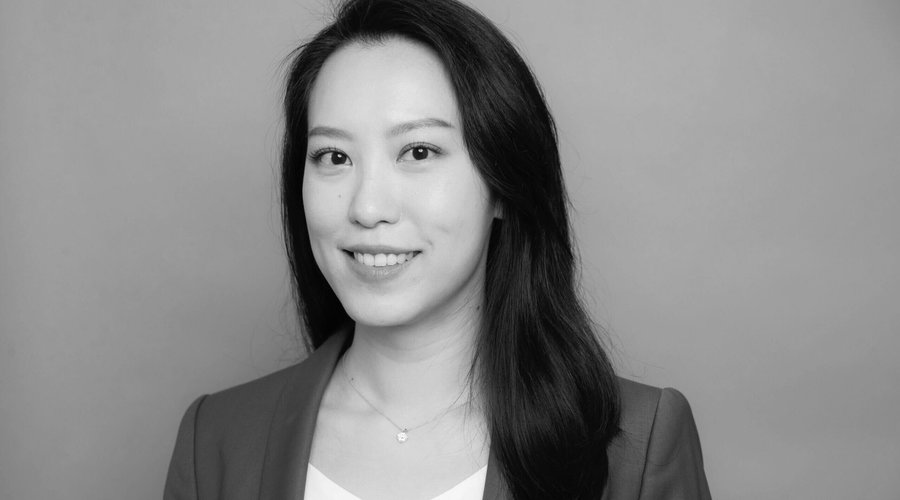Denise Law is on a mission to make clean energy accessible to everyone, including renters. With a background in investment banking and energy finance in Paris and London, Denise is now turning her focus to structured finance solutions that address the energy transition’s equity gap. In this Q and A, Denise shares the path that bought her here, her insights from the Women in Climate and Energy Fellowship and the vision behind her venture.
Tell us a bit about you - your background and how you came to work in climate?
My journey has always been guided by a drive to learn, a love of the unknown and a commitment to doing what is right. I began my career as an in-house management consultant in a bank and then pivoted to structured finance. Initially, I focused on transport, then moved into increasingly complex finance structures and asset classes and ended up in renewable energy.
My interest in climate and energy has deep roots. I studied manufacturing engineering at the University of Cambridge. During an exchange at MIT, I took a formative course (D-Lab) on decentralised technologies designed for developing and rural regions. At the time, I didn’t realise how pivotal that exposure would be.
Later, after leaving consulting and before starting in finance, I applied to a fellowship run by an NGO to perform audit and impact assessment on crowd-funded technology projects in developing countries. While on a modest stipend, I travelled to rural Kenya and saw firsthand how decentralised renewables could leapfrog infrastructure challenges. Almost a decade later, working in renewable energy project finance, I encountered those same themes, in the form of grid constraints for renewables deployment. In hindsight, the thread of technology and energy equity has run through my journey for a long time. It just took time and reflection to surface fully.
Why did you decide to apply for the EnergyLab Women in Climate and Energy Fellowship?
I relocated from London to Melbourne a year ago with my family and took a deliberate pause from my corporate career, not just to settle my children and spend time with my parents, but also to create space for reflection and realignment. Rather than return to familiar roles, I felt it was time to pivot toward something that challenges me to apply my full set of skills in new and impactful ways.
As a woman in finance with young children, I’ve come to value more deeply the role of mentorship and representation for women. WICEF stood out not only for its practical support in terms of startup education, industry insights and network access, but also for its community of inspiring, diverse women. It offered the right blend of structure, support and possibility to explore a new direction on solid footing.
'I am exploring a fintech-driven solution to unlock decarbonisation pathways for the rental sector, a segment too important to leave behind in the energy transition.'
Tell us about your startup idea: How did the idea come about? What problem are you solving?
When I joined WICEF, I didn’t have a concrete startup idea in mind.
Through open-ended interviews with people from different life stages, I noticed that renters, especially younger ones, care deeply about the energy transition but often feel powerless to participate. As I explored the reasons behind this, I found out that, despite generous government rebate schemes, Australia’s uptake of rooftop solar and batteries in rental properties is significantly lower than in owner-occupied homes. Landlords lack compelling reasons to invest in renewable energy assets and existing financial products don’t serve split-incentive properties well.
As such, I am exploring a fintech-driven solution to unlock decarbonisation pathways for the rental sector, a segment too important to leave behind in the energy transition.
'In a world that often celebrates drop-out founders and viral acclaim, the WICEF experience reminded me that steady progress, grounded in authenticity and long-term thinking, is equally powerful. Seeds planted long ago can blossom when the right conditions emerge.'
What has been your biggest learning during the fellowship?
One of the most meaningful learnings came from the cohort itself- an inspiring and diverse group of women approaching climate innovation from vastly different angles. Through them, I saw firsthand that there are many ways to build and lead, and that no single timeline defines success. In a world that often celebrates drop-out founders and viral acclaim, the WICEF experience reminded me that steady progress, grounded in authenticity and long-term thinking, is equally powerful. Seeds planted long ago can blossom when the right conditions emerge.
What’s next for you? And where can we find out more?
I plan to continue exploring this idea: more mapping and discovery, testing assumptions, deepening my understanding of the renter energy ecosystem, and shaping a solution that draws on both my structured finance background and new insights gained during the fellowship. For now, the best place to connect or follow along is via LinkedIn. I’m always open to conversations, partnerships, and perspectives as this journey evolves.
Any advice for women considering applying for the fellowship?
The programme delivered everything it promised and much more. For me, it was incredibly refreshing to have a dedicated weekly space to think differently, grow creatively and engage with amazing women. The conversations were rich, the support was generous and the diversity of experiences sparked fresh thinking. If you’re at a crossroads or feel a pull towards climate innovation, I wholeheartedly recommend the WICEF programme.
Interested in joining EnergyLab’s Women in Climate and Energy Fellowship? Head over to our website to fill out an EOI form. If you have any questions, email Milly at [email protected].
return to blog
